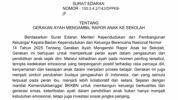Indonesia’s Military Bill Sparks Controversy: Civil Groups Warn of Military Overreach
“Placing active-duty military personnel in civilian roles such as those within the Attorney General’s Office or the KKP goes against the core principle of a professional, non-political military. The TNI’s role should strictly be defense, not law enforcement or bureaucratic governance,” said a spokesperson from the coalition.
The coalition also questioned the necessity of having an active TNI officer in the Attorney General’s Office overseeing the “military criminal jurisdiction.” This practice was originally meant for specific cases but has become institutionalized in a way that many civil society organizations argue is unnecessary and can lead to impunity for military personnel.
In addition to the military’s expanded civilian presence, the coalition is also concerned about the bill’s proposals to broaden the TNI’s involvement in operations outside of warfare, particularly in tackling narcotics. Civil society groups argue that narcotics issues should be handled within the framework of law enforcement, not through military intervention. “The TNI’s involvement in non-war military operations, such as drug enforcement, is excessive and undermines the criminal justice system. It risks turning the fight against drugs into a military campaign, which is dangerous and counterproductive,” said another coalition member.
The draft law also proposes allowing the TNI to undertake military operations outside of war without requiring approval from the national parliament (DPR), undermining the democratic oversight of military action. This provision is a significant departure from the current law, which mandates that military operations outside of wartime require parliamentary consent. The bill, as it stands, risks placing unchecked power in the hands of the military and the president, with no adequate parliamentary oversight.



























Tinggalkan Balasan